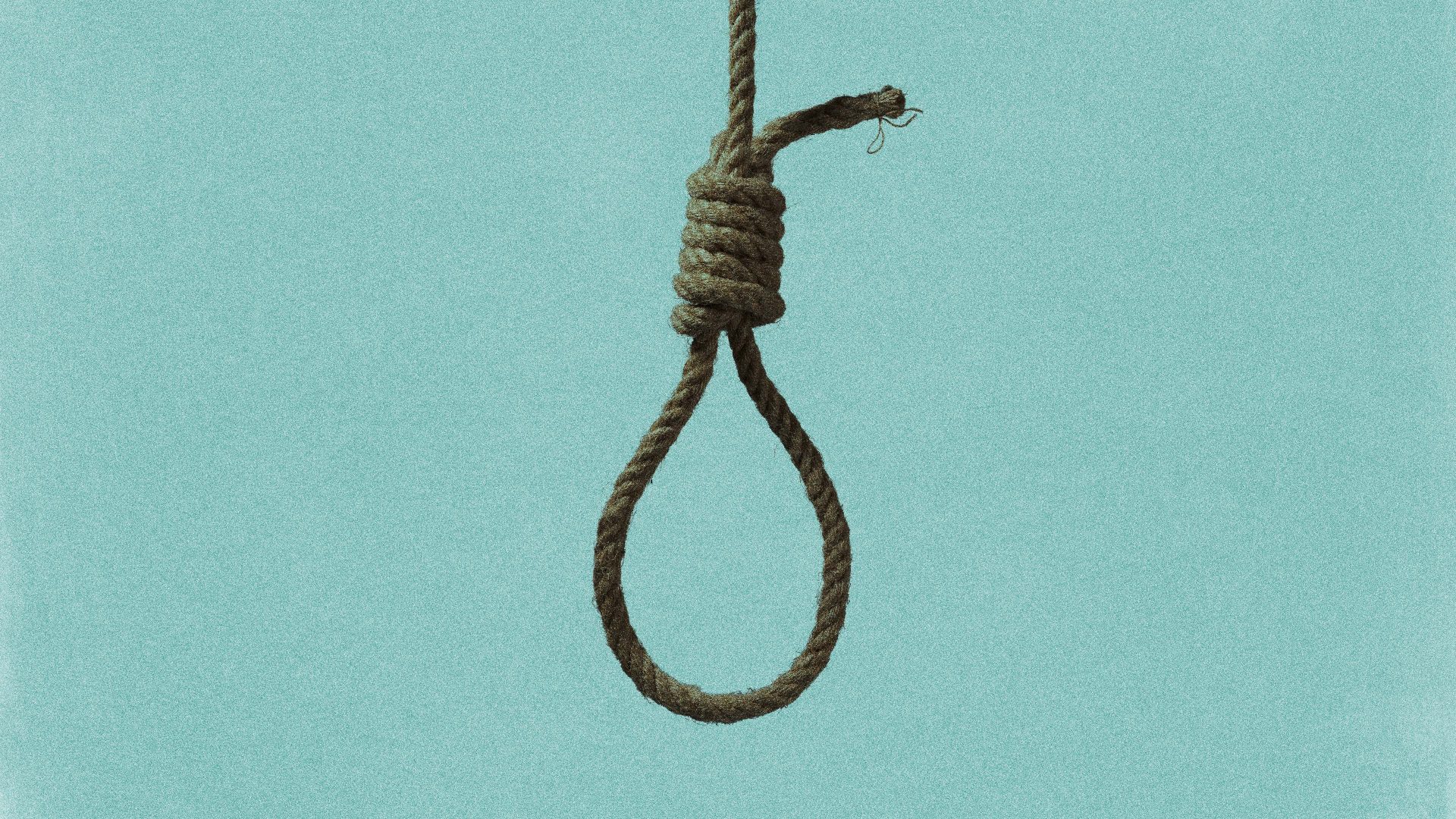Who could condone shooting a father of two in the back on a Manhattan street? Quite a few people it seems. In the wake of Brian Thompson’s killing, the main suspect, Luigi Mangione, has become a folk hero. Online stores are selling T-shirts with pictures of him, and slogans such as: “In this house Luigi Mangione is a hero, end of story”. You can buy your dog a bandana with the slogan “Free Luigi”.
The murder of the CEO of UnitedHealthcare has taken on a symbolic value. For many it is a warranted response to corporate America’s cynical exploitation of the sick and vulnerable through its healthcare companies. That seems to have been part of the killer’s intention, too, given the cartridge cases inscribed with the words “deny”, “defend”, and “depose”. One murder, perhaps, but a murder intended as an act of communication and to be recognised as such.
It probably helps that the suspect Mangione is good-looking and his face immediately recognisable. When he eventually comes to trial, the fervour around his actions will likely increase. A cult around him is already forming. Some will view him as a saintly victim of the system. There may be copycat attacks on others associated with the healthcare business.
We all have a fundamental right to life. How could any apparently intelligent person come to believe that it is right to murder someone else to make a political point like this?
Mangione is charged with first-degree murder, and if convicted he will rightly spend most or all of the rest of his life in prison. If he had committed a premeditated murder
in a different state he could have ended up on death row, awaiting lethal injection, gas, or even the electric chair.
Those who argue for capital punishment for extreme offences usually do so on the grounds that it is a proportionate state reaction to killing. The eye for an eye principle, sometimes known as lex talionis, is often invoked. If someone takes a life, they should lose their life. That is so-called natural justice, that is ultimately driven by a kind of revenge which is supposed to then restore a natural order once carried out.
In fact, there are very few crimes in which the punishment can mirror the crime so exactly as murder (it would be a strange legal system, for example, that insisted that a pickpocket’s wallet should be stolen as punishment for his crime). Immanuel Kant believed in this life for a life approach to intentional killing – for him the point of capital punishment wasn’t to act as a deterrent to other potential criminals.
Nor was it to protect society from someone who might potentially kill again. Rather it was a just a proportionate response to taking another’s life. That gets around the fact that capital punishment hasn’t proved a strong deterrent to murder. For Kant, retribution is right. The murderer must die. The murderer on this view forfeited his right to life. End of story. End of murderer.
While a desire for retribution is widespread, it is an extremely dangerous attitude to foster. Justice needs to be separated from the baser more instinctual drive for proportionate revenge. Here, that same thirst for revenge that fuels capital punishment in some US states is the driver for those who want to excuse the murder of Brian Thompson. They think that because his company was exploitative, he somehow had this coming to him and that it’s morally legitimate revenge.
Presumably Brian Thompson’s killer believed that Thompson was implicated in premature deaths of victims of a healthcare system that finds excuses not to provide life-saving drugs and treatments, so the eye for an eye argument held. The lifeless body on the sidewalk was a just outcome, the fatherless children collateral from his point of view.
But killing in revenge is different from justice. And vigilante “justice” is notoriously difficult to contain or control. To claim that a retributive killing is justice is a dangerous form of self-deception. Those who treat Mangione (if he was the killer) as a folk hero should examine their consciences. Do they really want to communicate that revenge assassination is a legitimate form of protest and vigilantism the way forward?
Really? Do they realise how poisonous that message is?



